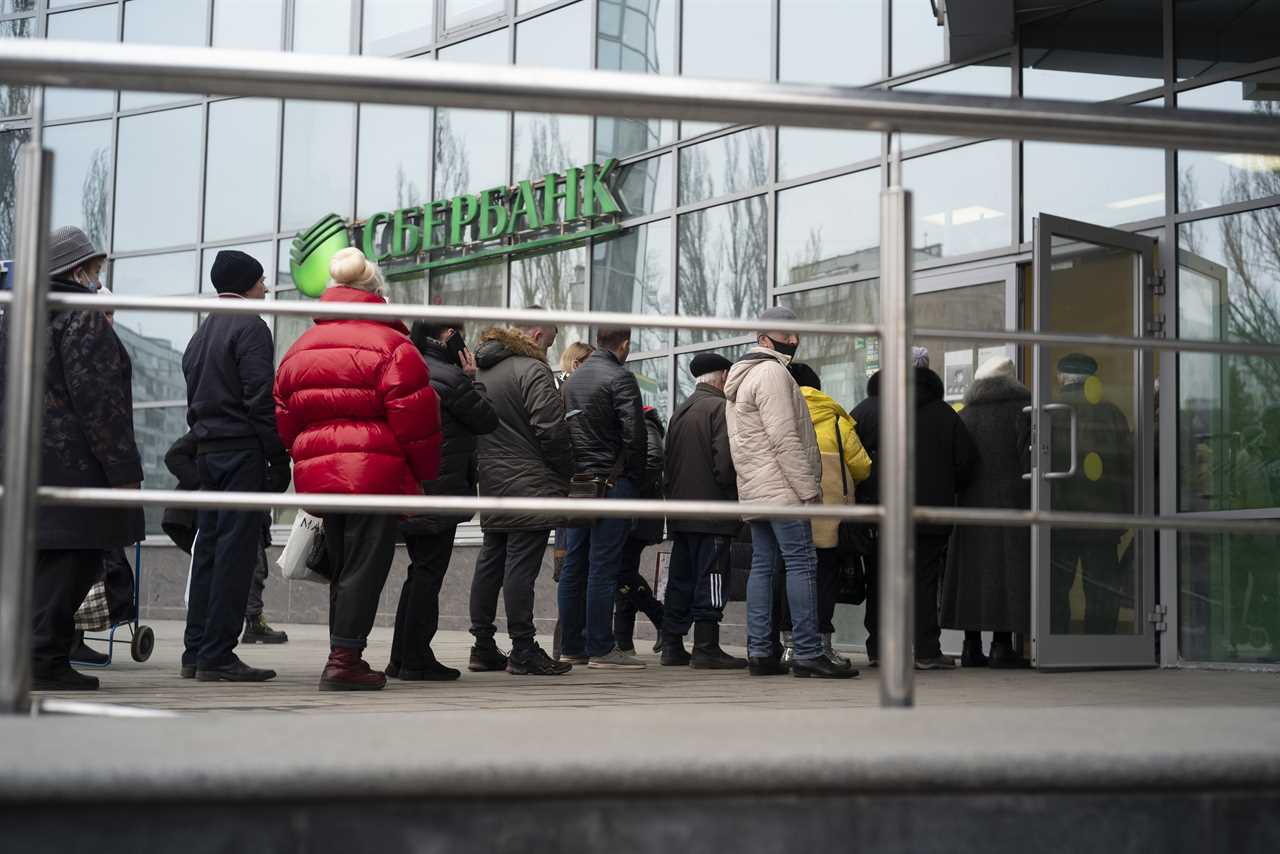
The U.S. will deploy tougher sanctions against Russia’s largest financial institution, Sberbank, and cut off all American investment into the country, in the latest blow to President Vladimir Putin's economy over the invasion of Ukraine.
The move announced Wednesday freezes all of Sberbank's assets that touch U.S. banks and will prevent Americans from doing business with the institution, which holds nearly one-third of all the assets in Russian banks. The bank is at the center of Russia’s financial system, and efforts to cripple it are likely to send tremors through the Russian economy.
A senior administration official said, however, there will still be a carve-out for energy transactions, part of a continued effort to shield Europe from skyrocketing oil and gas prices. The Treasury Department is also sanctioning Alfa Bank, the largest private lender in Russia, as well as several key state-owned companies, on top of a broader move to cut off funding to the country.
“We have seen an overwhelming move by companies to take actions on their own to pull out of Russia,” Brian Deese, a top White House economic official, told reporters Wednesday morning at an event hosted by the Christian Science Monitor. “Today, we will prohibit any new inbound investment.”
The latest sanctions on Russia’s biggest banks aim to dramatically escalate the financial shock the country has faced in recent weeks, a senior administration official told reporters on a call, noting that more than two-thirds of the Russian banking industry is now fully blocked from transacting with U.S. financial firms.
The investment ban “will make sure that the mass exodus from Russia that we're seeing from the private sector — which is now over 600 multinational companies and growing — that it will endure,” said the official, who requested anonymity to discuss administration policy. “Without investment from our private sector, Putin will lose private sector know-how and skills that travel with investment, and the knock-on effects to the ongoing brain drain from Russia will be profound.”
The Treasury also confirmed Monday that it is now banning Russia from using its frozen central bank reserves to make payments to bondholders. That means the Kremlin will have to find new sources of funding and new payment routes other than U.S. banks to avoid defaulting on its debt, the official said.
The official said the sanctions are having an impact on Russia, citing soaring inflation and interest rates that are now above 20 percent. Russia’s economy is expected to shrink by as much as 15 percent this year, more than twice the contraction it experienced following the 1998 currency crisis, when the country defaulted on its debt.
“But unlike then, when Russia was in the process of getting integrated into the global economy, it’s now in the process of being isolated as a pariah state,” the official said.
At this rate, Russia “will go back to Soviet-style living standards from the 1980s.” Russians will find it difficult to travel abroad, their debit cards may not work and store shelves may be empty, the official said.
The Biden administration had already taken some steps in February to cut off Sberbank from the U.S. financial system after Russia’s initial invasion, but it stopped short of the type of full blocking sanctions that it placed on VTB, Russia’s second-largest bank.
“Importantly, these measures are designed to reinforce each other to generate intensifying impact over time,” the administration said in a fact sheet.
Also targeted in Wednesday’s actions: Putin’s adult children, Foreign Minister Sergei Lavrov’s wife and daughter, and members of Russia’s Security Council including former President and Prime Minister of Russia Dmitry Medvedev and Prime Minister Mikhail Mishustin.
----------------------------------------
By: Victoria Guida and Kate Davidson
Title: Treasury cracks down on Russia's largest bank, moves to end U.S. investment
Sourced From: www.politico.com/news/2022/04/06/treasury-crackdown-russia-sberbank-00023372
Published Date: Wed, 06 Apr 2022 10:26:06 EST






